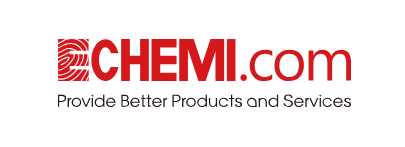chemical companies and product safety standards

Ensuring product safety is a paramount concern for chemical companies across the globe. Adhering to stringent safety standards is essential to protect consumers, workers, and the environment from potential hazards associated with chemical products. By implementing robust safety measures, conducting thorough risk assessments, and complying with regulatory requirements, chemical companies uphold their commitment to responsible manufacturing practices. Here are key points highlighting the importance of product safety standards in the chemical industry:
1. Regulatory Compliance:
Chemical companies are subject to a myriad of regulations and standards governing the production, labeling, storage, transportation, and disposal of chemical products. Compliance with regulations such as REACH (Registration, Evaluation, Authorization, and Restriction of Chemicals) and GHS (Globally Harmonized System of Classification and Labelling of Chemicals) is crucial for ensuring product safety, minimizing risks, and maintaining legal and ethical integrity.
2. Risk Assessment and Management:
Prior to introducing a new chemical product to the market, companies conduct comprehensive risk assessments to identify potential hazards, assess exposure risks, and implement appropriate risk management strategies. By evaluating the toxicity, flammability, reactivity, and environmental impact of chemicals, companies can mitigate risks, establish safe handling procedures, and protect stakeholders from harm.
3. Product Labeling and Documentation:
Clear and accurate product labeling is essential for communicating important safety information to consumers, distributors, and end-users. Chemical companies are required to provide detailed labels, safety data sheets (SDS), and hazard communication documents that outline proper handling procedures, emergency response protocols, and precautionary measures to ensure safe use of their products.
4. Quality Control and Testing:
Stringent quality control measures and product testing protocols are integral to verifying the safety, purity, and performance of chemical products. Companies employ analytical techniques, such as chromatography, spectroscopy, and mass spectrometry, to assess product quality, detect impurities, and ensure compliance with specifications, thereby safeguarding consumer health and environmental well-being.
5. Continuous Improvement and Innovation:
Chemical companies strive for continuous improvement in product safety by investing in research and development of safer alternatives, green technologies, and sustainable practices. Innovation in product design, manufacturing processes, and waste reduction initiatives not only enhances product safety but also contributes to environmental stewardship and societal well-being.
6. Emergency Preparedness and Response:
Chemical companies maintain robust emergency response plans and procedures to address unforeseen incidents, spills, leaks, or accidents involving hazardous chemicals. By conducting drills, training employees, and collaborating with local authorities, companies ensure prompt and effective response to emergencies, safeguarding human health, property, and the environment.
7. Stakeholder Engagement and Transparency:
Engaging with stakeholders, including customers, employees, communities, and regulatory agencies, fosters transparency, accountability, and trust in chemical company operations. Open dialogue, stakeholder consultations, and feedback mechanisms enable companies to address concerns, gather input, and demonstrate their commitment to product safety and responsible corporate citizenship.
In conclusion, adherence to stringent product safety standards is a fundamental responsibility of chemical companies to protect public health, ensure environmental sustainability, and uphold ethical business practices. By prioritizing safety, compliance, risk management, and stakeholder engagement, chemical companies demonstrate their commitment to fostering a culture of safety, innovation, and social responsibility in the chemical industry, ultimately contributing to a safer and more sustainable future for all.
- Questions and Answers
- Opinion
- Motivational and Inspiring Story
- Technology
- Live and Let live
- Focus
- Geopolitics
- Military-Arms/Equipment
- Seguridad
- Economy
- Beasts of Nations
- Machine Tools-The “Mother Industry”
- Art
- Causes
- Crafts
- Dance
- Drinks
- Film/Movie
- Fitness
- Food
- Juegos
- Gardening
- Health
- Home
- Literature
- Music
- Networking
- Other
- Party
- Religion
- Shopping
- Sports
- Theater
- Health and Wellness
- News
- Culture

